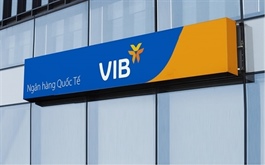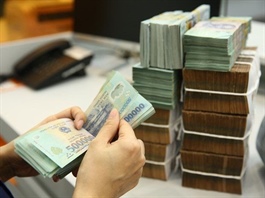More incentives needed to support green credit: Experts
More incentives needed to support green credit: Experts
Experts have shared a view that green credit and green growth play an important role in implementing the National Green Growth Strategy in the 2021-2030 period with a vision until 2050 as they create resources for environmentally-friendly projects and programmes.

Experts have shared a view that green credit and green growth play an important role in implementing the National Green Growth Strategy in the 2021-2030 period with a vision until 2050 as they create resources for environmentally-friendly projects and programmes.
Dr. Nguyen Quoc Hung, Vice President and General Secretary of the Vietnam Banks Association, said the banking sector has worked hard to achieve targets set by the government in the strategy.
The State Bank of Vietnam (SBV) has issued many credit documents in accordance with the goals of environmental protection and carbon emission reduction, towards green growth, he said, taking the examples of Directive No. 03/CT -SBV dated March 24, 2015 on promoting green credit growth and managing environmental and social risks in credit granting, along with the action plan of the banking sector to implement the strategy until 2020.
Most recently, the central bank issued Circular No. 17/2022/TT-NHNN dated December 23, 2022 guiding environmental risk management in credit granting by foreign credit institutions and banks in Vietnam, he continued.
"It can be said that the legal corridor in Vietnam has been gradually consolidated to facilitate green credit and green banking," Hung affirmed.
Credit institutions have also joined such efforts, he said, citing statistics by the SBV's Department of Credit for Economic Sectors showing that as of June 30, outstanding green credit loans reached nearly 528.3 trillion VND (21.5 billion USD), accounting for about 4.2 per cent of the total outstanding debt of the entire economy, mainly in renewable energy, clean energy and green agriculture.
However, Hung said, potential for green credit in Vietnam has remained fully untapped, further explaining that the process has faced hindrances in terms of resources, knowledge and experience of bank employees, and sluggishness in the issuance of internal regulations by some banks.
Tran Anh Quy, Head of Policy Credit at the Department of Credit for Economic Sectors, pointed to the lack of a national green list that would serve as a foundation for capital mobilisation.
Moreover, credit institutions have found it hard to balance loans as green projects need big investments and long payback periods, and face high risks, given limited support mechanisms and policies, he went on.
To untangle such knots, many proposed the government, the central bank and management agencies further consolidate the legal corridor, and soon issue the green list.
Quy emphasised that the SBV will continue with solutions and policies to promote banks’ activities towards green growth, thus contributing to economic recovery.


























